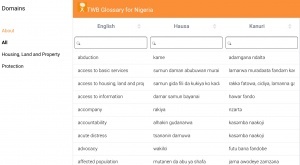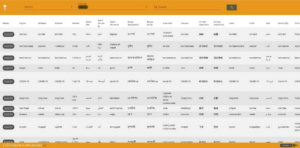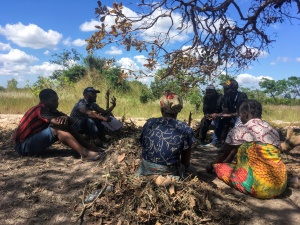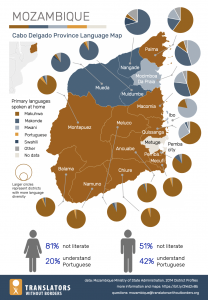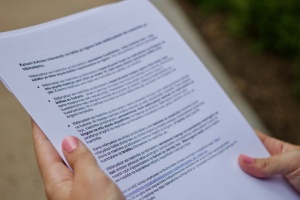Translators without Borders, in collaboration with Oxfam, has identified six key tips for humanitarians to address the sociolinguistic barriers that often occur when working with interpreters on sensitive topics, and to support the mental health of interpreters. Read more in English here.
TIP SHEET Interpretation and Sensitive Topics – SP
Translators without Borders, in collaboration with Oxfam, has identified six key tips for humanitarians to address the sociolinguistic barriers that often occur when working with interpreters on sensitive topics, and to support the mental health of interpreters. Read more in Spanish here.
TIP SHEET Interpretation and Sensitive Topics – AR
Translators without Borders, in collaboration with Oxfam, has identified six key tips for humanitarians to address the sociolinguistic barriers that often occur when working with interpreters on sensitive topics, and to support the mental health of interpreters. Read more in Arabic here.
TIP SHEET Interpretation and Sensitive Topics – FR
Translators without Borders, in collaboration with Oxfam, has identified six key tips for humanitarians to address the sociolinguistic barriers that often occur when working with interpreters on sensitive topics, and to support the mental health of interpreters. Read more in French here.
Protected: TWB ye Kamusnzǝ yalagǝdi Najeriyabe
There is no excerpt because this is a protected post.
Protected: Babal maana kalimaaji TWB je woyla fuunaange lesdi Nigeria
There is no excerpt because this is a protected post.
Protected: Kamus na TWB don Arewa maso gabashin Najeriya
There is no excerpt because this is a protected post.
TWB glossary for COVID-19
Vietnamese – Simplified Chinese – Taglaog – Burmese – Kurmanji – Arabic – Swahili – Kibaku – Waha – Bura Pabir – Mandara We are identifying key terminology that people use to talk about COVID-19 as well as commonly-used technical terms. We are using this to develop a multilingual, plain-language glossary that can support public […]
TWB glossary for COVID-19
Languages: Afrikaans, Albanian, Amharic, Arabic (Modern Standard Arabic), Arabic (Shuwa-Arabic script), Arabic (Shuwa-Latin script), Bambara, Bangla (Bangladesh), Bangla (India), Bura-Pabir, Cebuano, Chinese (Simplified), Chinese (Traditional), Czech, Dari, Dutch, Farsi, French (France), Fulfulde, German, Haitian Creole, Hausa, Hindi, Indonesian, Japanese, Kanuri, Kibaku, Korean, Kurdish Kurmanji, Kurdish Sorani, Italian, Lingala, Maguindanao, Malay, Mandara, Maranao, Marathi, Marghi, Myanmar, […]
Palavras são necessárias: A utilização de línguas locais melhora a compreensão por parte das pessoas afectadas pelo ciclone Idai na Beira, Moçambique
Leia e faça o download do resumo dos resultados e das recomendações aqui. Também é possível fazer o download deste resumo e do relatório em inglês.
Cyclone Kenneth in Cabo Delgado, Mozambique – Crisis language map
Cyclone Kenneth hit the northern part of the country on 25 April 2019, the strongest storm in Mozambique’s recorded history and the second in five weeks. Strong winds, rainfall, landslides, and flooding are expected at the time of writing, endangering lives and livelihoods. In the wake of Cyclone Kenneth, people affected need to obtain critical […]
Translating information to prevent sexual exploitation and abuse
Sexual exploitation and abuse continue to occur in humanitarian contexts worldwide. We believe that language can help prevent it. Preventing abuse starts by making the rules on sexual conduct clear and available in languages people can understand, so everyone knows what is acceptable. The international humanitarian world’s coordination body, the Inter-Agency Standing Committee (IASC), developed […]
